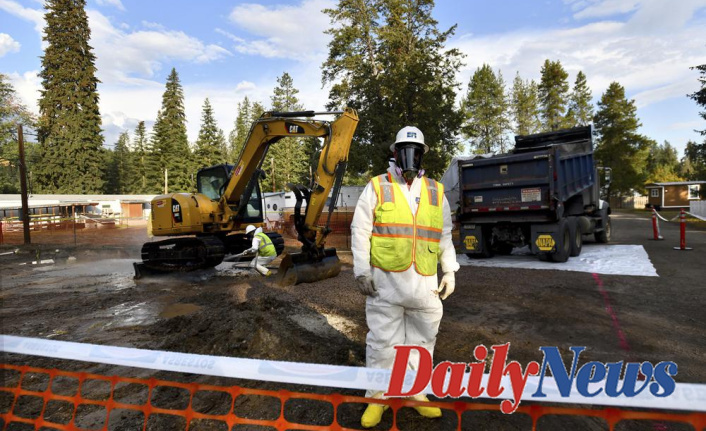The asbestos was extracted from vermiculite mining and transported by rail across the country to be used as an insulation and as a soil additive.
The Environmental Protection Agency and Montana Department of Environmental Quality have been conducting site investigations for over two decades and are now proposing to stop their work at the railyards in Troy and Libby, along with 42 miles (68 km) of railroad right of way.
The railway line will still be in use, but the owner, BNSF Railway, agreed to manage it in a manner that protects human health under a 2020 consent decree. This includes the prevention of soil disturbance and the destruction of building materials that contain asbestos.
W.R. Grace owned the mine from 1990 to 1990. The toxic dust left behind by the mine has claimed that at least 400 people were killed and thousands more have been sickened. After media reports, federal officials began cleaning up the area and started work in 2000.
Peggy Williams, Libby Mayor, said that the city has not experienced any problems recently with BNSF's properties. This is because topsoil and contaminated buildings were removed previously. She said that vermiculite can still be found in homes, especially during construction work on houses that were built with the material as insulation.
Williams stated that the only thing that is lingering and causing us problems is vermiculite that has been left behind in residential buildings.
More than 2,600 homes, Businesses and other properties were cleaned out at a total cost of over $600 million. The mine's asbestos cleanup is ongoing and will continue for many years.
W.R. Grace was a victim of asbestos product litigation that led to bankruptcy. In 2008, the company agreed to pay $250 million for contamination in Troy and Libby.
Numerous claims by victims of asbestos in the Libby region are pending against BNSF and insurance companies, as well as other parties.












